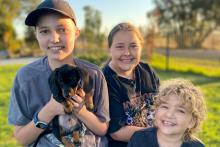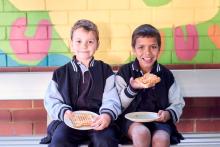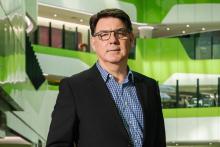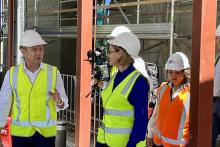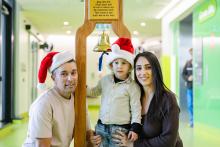Childhood challenges rarely exist in isolation and facing physical illness, mental illness or injury brings about a plethora of disadvantages, including disruption of education.

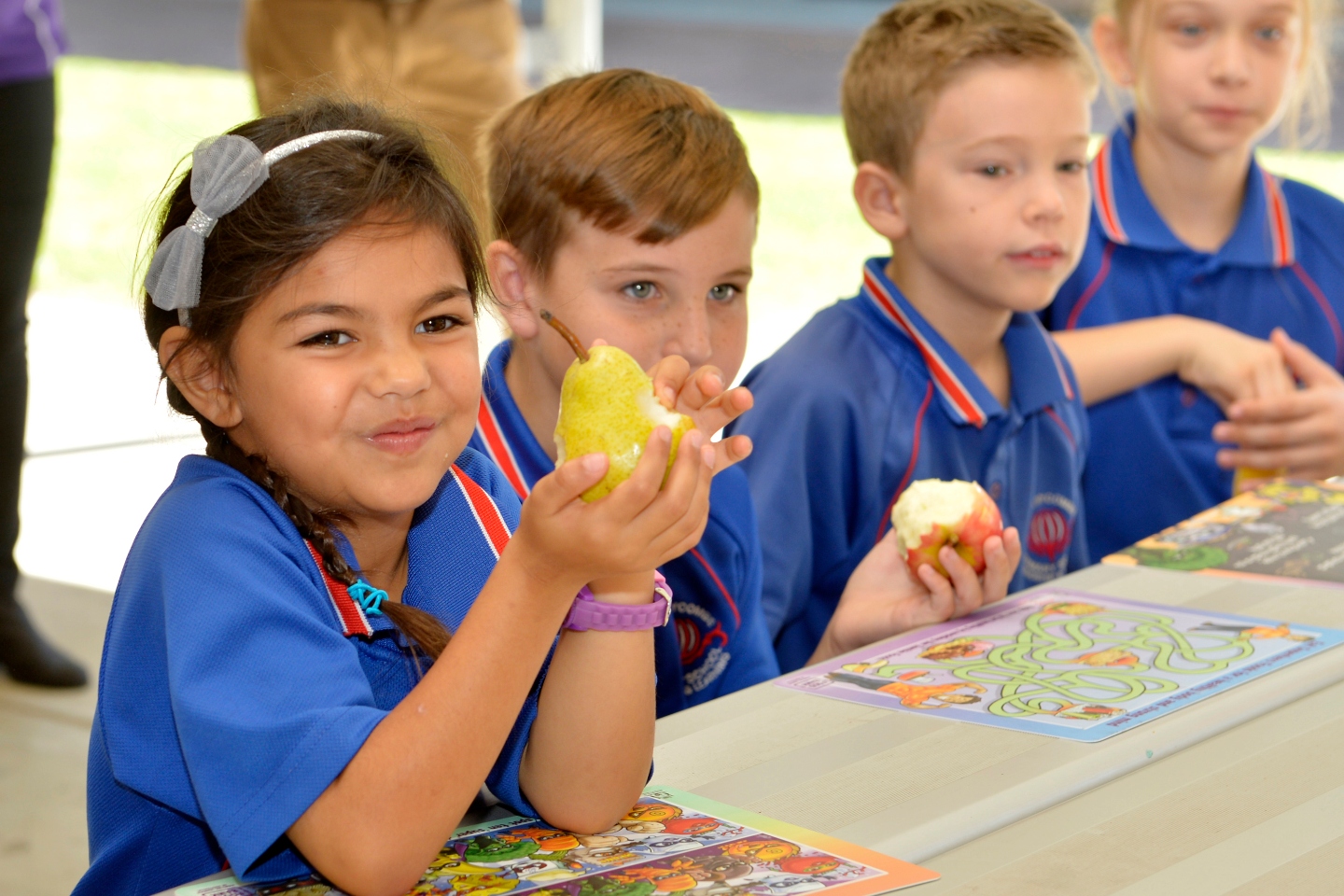
Childhood challenges rarely exist in isolation and facing physical illness, mental illness or injury brings about a plethora of disadvantages, including disruption of education.
Returning to school after, or even during, an experience with illness or injury can be overwhelming for a child and their family, but there are a variety of Western Australian charities working to alleviate the stress of this and provide young people with the same chance as their peers to achieve their goals.
According to Ronald McDonald House Charities WA, about 15 per cent of children across Australia are impacted by serious conditions such as cancer, heart disease and cystic fibrosis.
RMHC WA understands the toll this can take on a child’s schooling and has therefore implemented educational supports to help children whose learning has been impacted during times of ill health.
The Ronald McDonald Learning Program (RMLP) assists children returning to school by supporting them through psychometric assessment, allied health intervention and tutoring to fill gaps in learning due to their absence.
This program helps young Western Australian learners at no cost to their family and the one-on-one intervention with a teacher creates an opportunity to identify the child’s individual needs, not only with an academic focus, but also addressing social and emotional wellbeing.
With the guidance of their allocated tutor, students are more able to set goals and work towards meeting and even exceeding their potential.

Ronald McDonald Learning Program student Joshua with tutor Sally Hodder.
The RMLP also provides funding for allied health support, such as occupational or speech therapy.
“We are fortunate to live in an age where more children are now long-term survivors of serious illness thanks to advances in medical treatments,” Ronald McDonald Learning Program education services manager Stephanie Pavlinovich said.
“We also know around 14 per cent of school aged children are living with a mental health disorder that may also significantly disrupt education.
“However, each child’s treatment varies, and the impact of hospitalisation, medications and lengthy convalescence means many children will fall behind in their education, often leaving a greater long-term impact than the illness.
“This can have a devastating effect on the child’s future and life chances.”
The RMLP provides 40 hours of tutoring to students whose education has been disrupted due to their health and is designed to suit the needs of the student.
94 per cent of RMLP students experienced improved educational outcomes
Parents of students in the RMLP often report a significant improvement in their child’s confidence and self-esteem, a by-product of the intervention and the ripple effect it has on all areas of their lives.
The parent of one of the recipients of this educational service said she was thankful for the support provided by RMHC WA during a difficult time in her son’s life.
“My son’s high school years were heavily impacted by mental health issues, so my son and I are both very grateful for the opportunity to access this important program,” Morena said.
“Thank you to all the staff who have been extremely supportive and matched Lucas with amazing tutors, for English and Maths. Both were extremely supportive and understanding of Lucas's circumstances, especially when his anxiety impacted his ability to attend tutoring sessions from time to time.
“We had great success with the tutoring we were able to access through RMLP, in particular, the tutoring helped my son prepare for and pass the reading, writing and numeracy assessment requirement (OLNA). This in turn provided him with the minimum pre-requisite required to apply for a Cert III course at TAFE.”
Another parent echoed Morena’s comments, saying the RMLP tutoring program had been an enriching experience for her daughter.
“Her tutor has supported her so much and helped her gain confidence in herself,” Sharon said.
“She was struggling with her reading [and] she is now reading so confidently, it's an amazing result. They then moved to maths where she struggled even more, and she has now conquered the maths concepts so she has a baseline which we will continue to work on.
“Her time spent with her tutor has been invaluable to her development. She has grown in confidence and now believes that she has the ability within to tackle any new learnings, I couldn't be more proud of the work they have done over the past fourteen months.”

Parents of students in the RMLP often report a significant improvement in their child’s confidence and self-esteem.
In 2024, the Ronald McDonald Learning Program had a caseload of 313 students, 94 per cent of which experienced improved educational outcomes and 87 per cent had improved wellbeing.
Ms Pavlinovich said getting education back on track after disruptions due to illness or injury was vital for more than just academic reasons.
“Keeping children connected to their education keeps learning momentum going, and rebuilding routine helps them to reintegrate smoothly back into school life when they’re able to,” she said.
“Learning activities can help young people with memory, concentration, and mental stamina, and in fact structured educational support can be an important part of their recovery process.
“Importantly, staying connected to education rebuilds social connection. Being a student isn’t just about the curriculum, it’s about making friends, learning social skills, and a sense of belonging.
“Being behind your classmates can make children feel different, frustrated and even ashamed, so catching up academically can help them to regain a sense of capability and belonging. It’s about helping the whole child heal, grow, and move forward with their life."
"The RMLP steps in when most medical support ends, making families feel less alone during recovery." RMLP education services manager Stephanie Pavlinovich
The RMLP aims to help children feel ‘normal’ again, while alleviating emotional and financial pressures on families, according to Ms Pavlinovich.
“When the hospital stay ends, the learning challenges often don’t,” she said.
“The RMLP steps in when most medical support ends, making families feel less alone during recovery.
“We are aiming to bridges the gap between health and education, and the program helps schools understand a child’s needs and make appropriate adjustments to save families from having to fight for accommodations or navigate the system on their own.”
While 15 per cent of Australian children are battling serious health conditions, there are also about 63,000 kids and families living with a rare or undiagnosed disease in WA, which introduces another aspect of distress to an already difficult experience.
Nearly three years ago, Perth Children's Hospital (PCH) established its Clinical Centre for Rare and Undiagnosed Diseases, also known as the Rare Care Centre, partly-funded by Perth Children's Hospital Foundation (PCHF) and principal partner Mineral Resources.
The Rare Care Centre was designed to transform the journey of those with a rare or undiagnosed illness, enabling children to flourish and thrive.
It is the first centre of its type to offer dedicated support and treatment plans, and is enhancing lives through a unique, holistic model of care to improve health outcomes and ease the burdens faced by children and families.
Mitchell and Savannah are two children benefitting from the centre’s services, with their families being helped on the complex journey of diagnosis, treatment, and care coordination.

Savannah Tucker has received support from Perth Children's Hospital's Rare Care Centre.
Savannah’s journey
As one of only a few people in Australia with TRAPPC9, a rare genetic condition that affects cognitive and motor development, seven-year-old Savannah Tucker’s path to diagnosis was long and uncertain.
Trinh, Savannah’s mother, said there was only one other person in WA with her daughter’s condition and just three children in all of Australia.
“It’s rare, and that can make it really hard to find the support Savannah needs,” Trinh said.
“Science has come a long way, but when your voice is so small, it’s hard to get heard. When you’re dealing with something undiagnosed or rare, you’re always looking for answers that aren’t always there.
“We just want to make sure Savannah, and others like her, have a voice and a place in the world. People with rare conditions don’t want to be seen as different, they just want to be part of the community.”
Savannah has been attending the Rare Care Centre since October 2024, receiving specialised care from a team of healthcare professionals familiar with managing rare conditions.
Mitchell’s journey
Mitchell Yates, aged six years, has Pallister-Killian Syndrome, a rare condition that affects fewer than 500 people across the world and requires ongoing, specialised care.
Born prematurely, Mitchell spent the first two weeks of his life in PCH’s Neonatal Intensive Care Unit (NICU), and his parents were told he would not make it past the age of five, but Mitchell defied those expectations and reached his sixth birthday.
Symptoms of PKS include seizures, intellectual disabilities, and physical challenges, and Mitchell’s condition is further complicated by type 1 diabetes and epilepsy.

Mitchell Yates at PCHF's 2024 Charity Cherry Auction.
Jaya, Mitchell’s mother, said the Rare Care Centre provided valuable support to the family.
“Rare Care has been an essential resource and prime point of contact to help us coordinate the multiple different healthcare teams that need to be engaged when Mitchell undergoes a surgery or procedure,” she said.
“Being a carer for a child with a rare or undiagnosed disease, there’s not a lot of support. It can often feel like you’re on your own, and that’s why dedicated initiatives like the Rare Care Centre are so vital for families like ours.”
PCHF chief executive Carrick Robinson said the Rare Care Centre was playing a growing role in supporting, advocating for, and conducting research on behalf of vulnerable children like Savannah and Mitchell.
“These children and their families often face unimaginable challenges and Perth Children’s Hospital Foundation is proud to support the globally connected Rare Care Centre to help some of our most vulnerable children live their best lives possible,” Mr Robinson said.
Building a safe future for vulnerable kids
Education and wellbeing are also target areas for zero2hero and in 2024, the youth mental health charity delivered 57 mental health programs across 12 schools and youth groups in the Kimberley region.
With support from Telethon, zero2hero directly educated 1,511 children in the Kimberley and trained 66 young people to become suicide-alert helpers through its safeTALK program.
The charity invests in prevention and connection, offering programs that meet young people where they are – at school or within community – including Camp Hero and Hero High.
These programs are not just workshops or camps, but safe spaces where young people can connect, reflect, and feel empowered to lead.
Last year, 92 per cent of students reported a stronger understanding of mental health, 91 per cent said they had learnt practical ways to support themselves and others and 97 per cent of Camp Hero attendees felt more able to influence their schools.
zero2hero’s programs allow young people to expand their capabilities, gaining skills in leadership, emotional literacy, resilience, and suicide prevention, but ongoing investment was required to maintain these initiatives.
Meanwhile, Foodbank WA is addressing the dietary consequences and health outcomes of children facing economic and social disadvantage.
"While we are thrilled to reach new schools and provide this service to more students, it is a bittersweet achievement." Foodbank WA CEO Kate O’Hara
A three-year partnership with Mineral Resources and Pilbara Minerals has supported the food charity’s nutrition education and cooking program nom! schools.
The program was developed to improve the knowledge, confidence, and skills of WA school children to support healthy eating.
Schools that are members of Foodbank WA’s School Breakfast Program are eligible for the nom! schools program, which is available across WA’s Pilbara region, Perth metropolitan area, Bunbury and Geraldton.

Foodbank WA's School Breakfast Program feeds more than 25,600 children in need each week.
The School Breakfast Program has been running for 25 years, providing schools with access to breakfast foods to ensure hungry students are fed before entering the classroom.
A record 560 schools across the state registered for the program in 2024, feeding more than 25,600 children weekly.
“While we are thrilled to reach new schools and provide this service to more students, it is a bittersweet achievement,” Foodbank WA chief executive Kate O’Hara said.
“That’s 560 schools who see children coming to school hungry. 560 schools who recognise the difference that one meal can make. 560 schools where students need help, to get food in their tummies for better nutrition, health, and academic outcomes.
“We thank Telethon for their ongoing support of our School breakfast Program and we’re proud to be working together towards ending hunger and want to thank our amazing network of schools for running this program and supporting students in need.”
Increasing investment in community-led, culturally safe supportive services such as those provided by Ronald McDonald House Charities WA, Perth Children's Hospital Foundation, zero2hero and Foodbank WA are fundamental for the protection and education of children.






